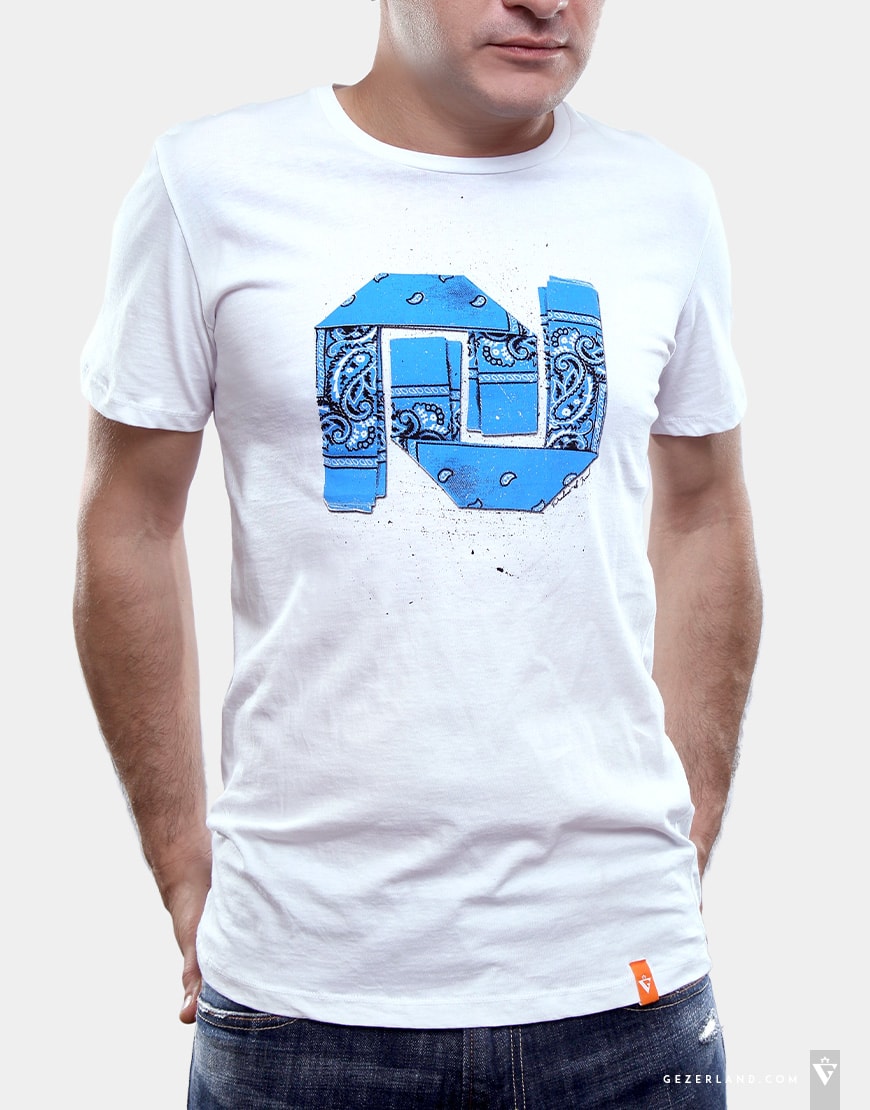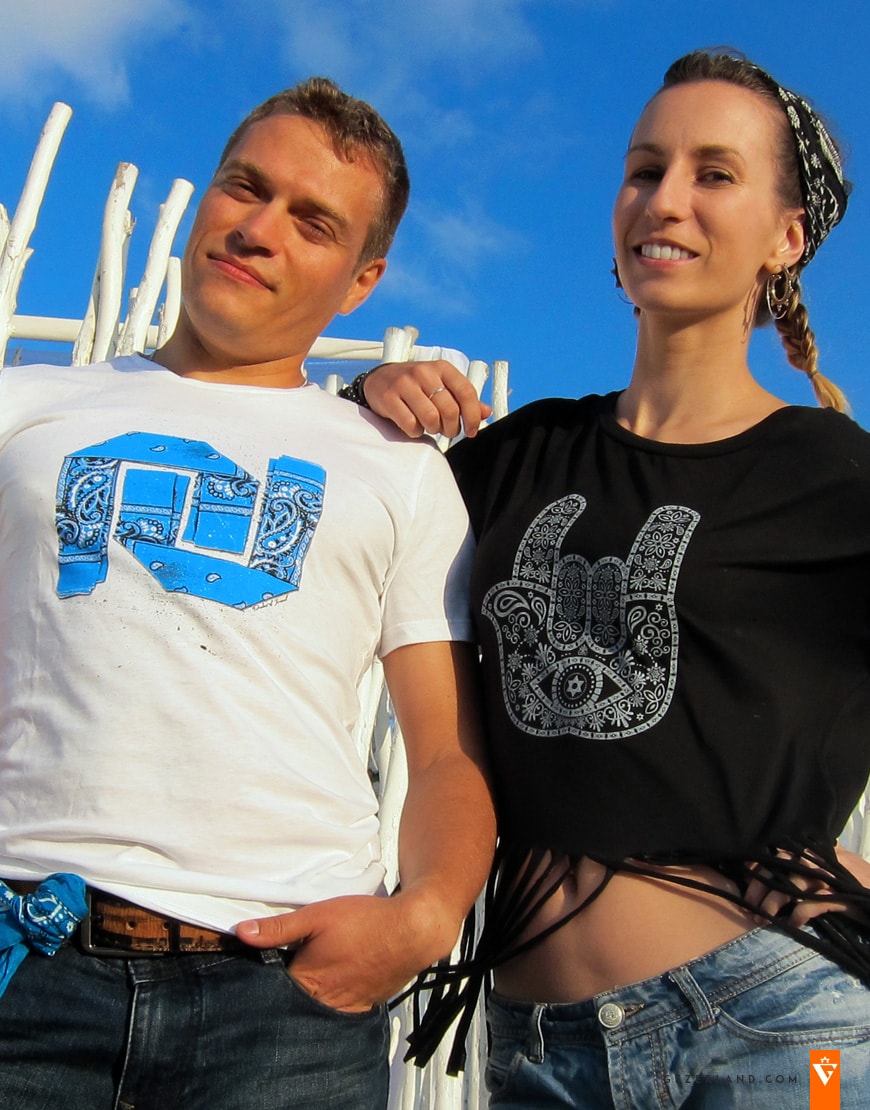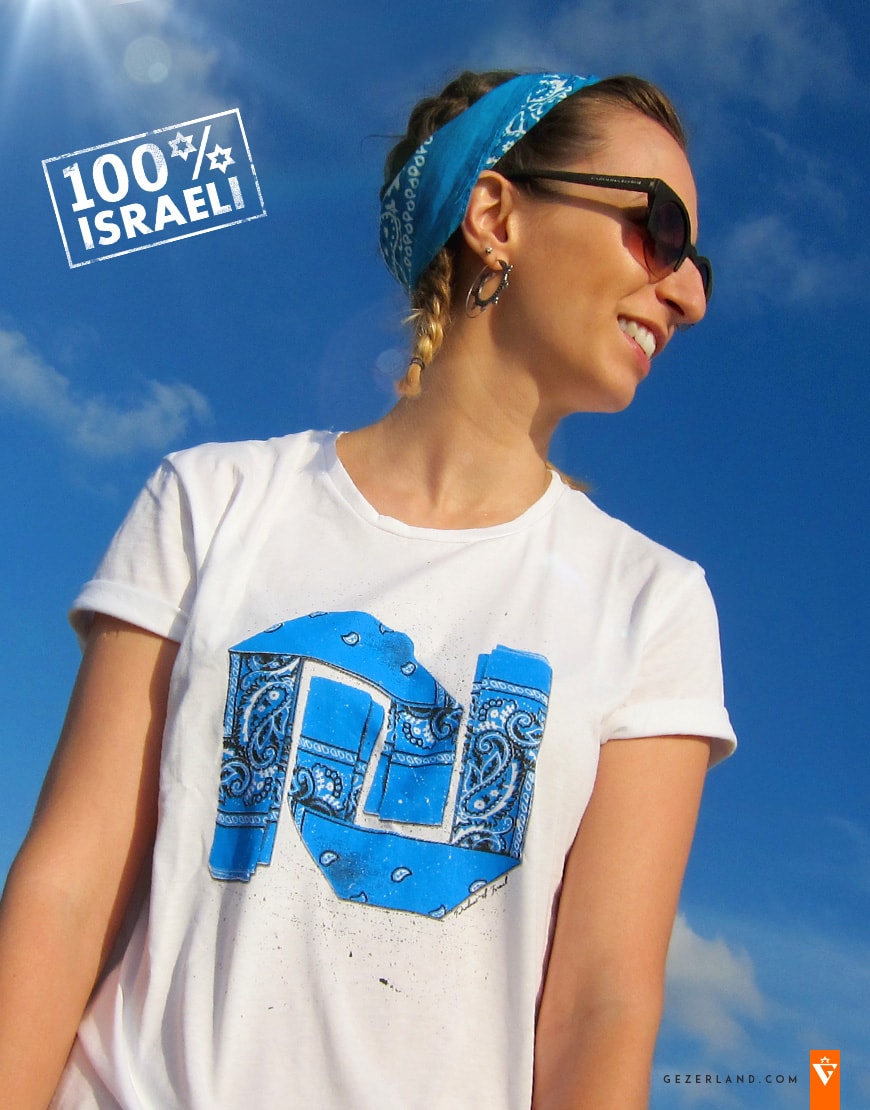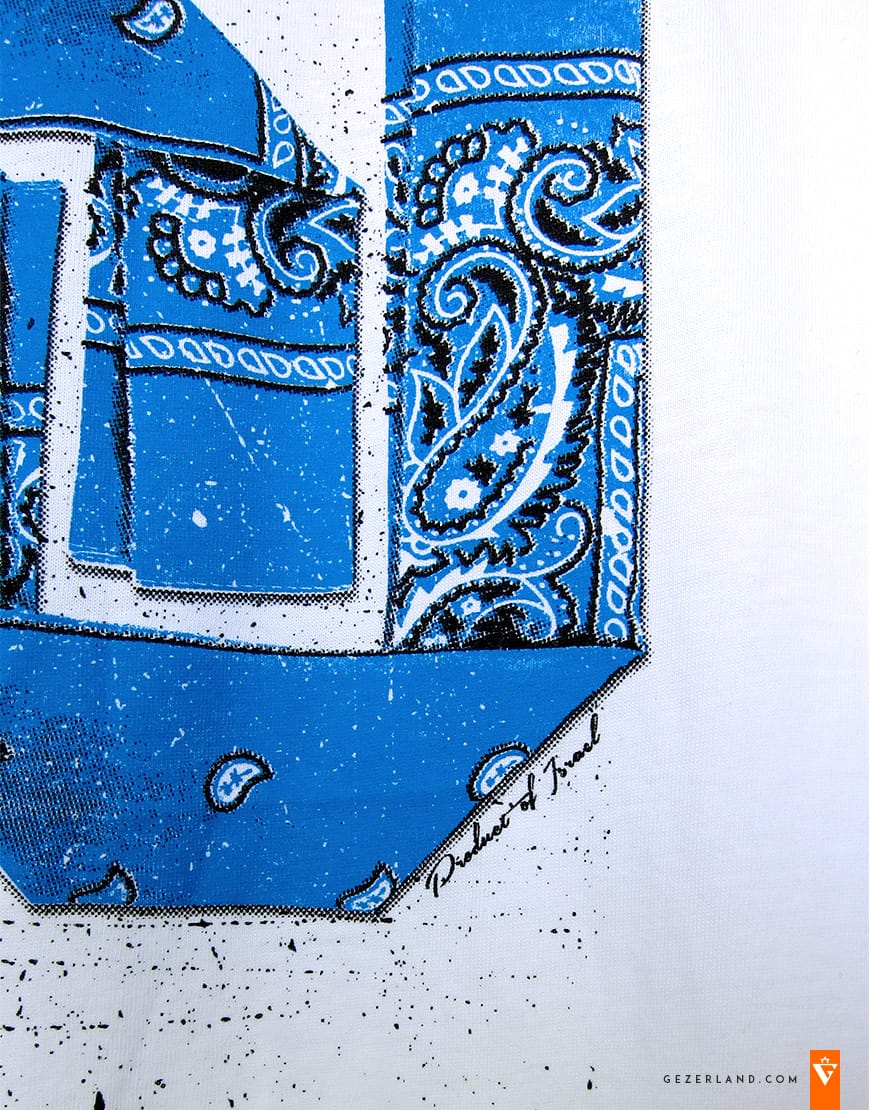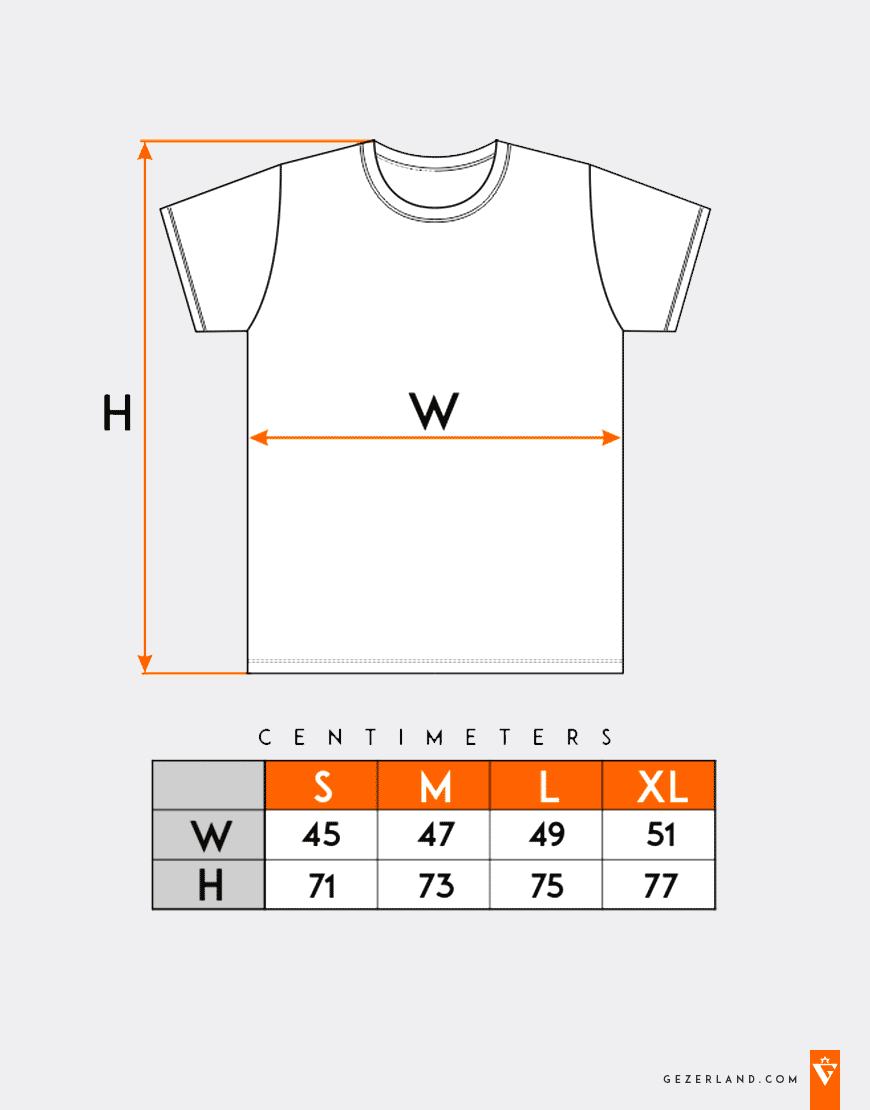White T-shirt with the national currency of Israel - New Israeli Shekel
100% Cotton. Two colours screen print. Print size: 20*30cm
Made in Israel
The Shekel in the Past and Now
The shekel, which is formerly known
as the new Israeli sheqel, is the currency of this amazing and great country ŌĆō
Israel. It has a long story: the first Israeli pound turned into the modern
sheqel and 3 series of banknotes replaced each other bringing something new to
the appearance and leaving something old to loved and respected traditions.
The story of Shekel origin
The currency sign Ōé¬ presents itself a combination of the first Hebrew letters of such words as
shekel ū® and
hadash ūŚ, while the name itself came
from the ancient currency known from the Bible as having the same name. In
general shekel is a unit of weight and so, at first, it was applied to a barley
weight. In ancient times, it weighed 11 grams of it.
How the Israeli pound became the shekel?
When the modern Israeli state
was formed in 1948, the government introduced the currency, which was pegged to
the British pound. That is how the story began. The Israeli pound existed until
1980, when it was finally replaced by shekel. In 1955, the Israel National Bank
started to issue first banknotes, although the Hebrew name still wasnŌĆÖt used.
It caused a lot of debates and so the minister of Finance had to insist on name
changing. At that time 1 shekel was equal to 10 pounds.
The old shekel, as it is known
nowadays, existed from 1980 up to 1985. It experienced several devaluations and
even hyperinflation, but that is how the modern shekel was introduced.
3 series of banknotes
The story of banknotes is even
more thrilling as they depict people being important for nation and the country
in general. For example, the first green banknotes of 1 note, which appeared in
1986, had the picture of Jewish philosopher and astronomer Maimonides. The second
5 note showed the third Prime Minister of Israel Levi Eshkol, while the 10 note
had the image of the Israeli teacher, stateswoman and fourth Prime Minister of
Israel Golda Meir. They all existed only up to 1999.
The second B series was
released in 1999 and exist up to the present: green 20 notes with the picture
of Moshe Sharett, the second Prime minister of Israel; purple 50 notes
depicting Shmuel Yosef Agnon, the Nobel Prize laureate and the central figure
in the modern Hebrew fiction; brown 100 notes showing Yetzhak Ben-Zvi, the
longest-serving President of Israel.
The last C series were
introduced in absolutely new design in 2012 ŌĆō they bear the portraits of famous
Hebrew poets such as Leah Goldberg or Nathan Alterman.
The love of the great nation
to the country is felt everywhere: from the sincere desire to have the own
currency name in 1980 to the portraits of respected political leaders and people
of art.

